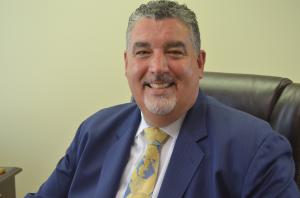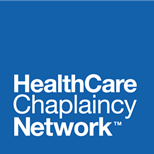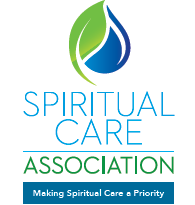Are Chaplains Ready for the 'Second Pandemic' of COVID-19?
HealthCare Chaplaincy Network CEO: Chaplains and organizations they work for have to find ways to rise to challenge of caring for the sick and their loved ones
As we emerge battered and bruised from the front lines, vaccinated in increasing numbers against the disease, able to take off our masks and embrace our fellow human beings, is this the moment chaplains can stand down? I doubt it. Though COVID numbers are dropping, reports of substance abuse, anxiety and depression have increased dramatically. In fact, the toll on people’s mental wellbeing has been so severe that one healthcare leader has called mental health a “second pandemic within the pandemic.”*
A year ago, Mental Health America conducted a survey of more than 1,100 healthcare workers to find out how they were coping during the height of the pandemic.** The results were not surprising. People reported feeling high levels of stress, anxiety, overwhelm, and burn out. Emotions expressed ranged from sadness to anger, grief, fear, loneliness, a sense of powerlessness, and a feeling of being under-appreciated and disconnected. Few at the time of the survey expressed feelings of gratitude, hope, and pride.
The pandemic has left many with rampant depression, anxiety, and fears of all kinds. Millions of people worldwide have lost their jobs and their homes in the past 16 months. Food insecurity and poverty have risen sharply. Alcoholism has increased in many places. Suicide rates are up. And the toll on the mental health of children has yet to be fully assessed and understood. It’s time now for chaplains to turn our focus towards the mental health issues that our patients, their families, our clinical colleagues and other coworkers -- yes, and even ourselves -- are experiencing.
Some are asking whether chaplains have a place on mental health teams. Aren’t there large numbers of psychiatrists, psychologists, social workers, and other mental health experts to address the problem -- as well as help lines, Employee Assistance Programs, and other mental health resources on social media and elsewhere? What can the chaplain add to the support already being offered to people with mental and emotional needs as the pandemic subsides?
Perhaps more so than any of our professional clinical colleagues, chaplains have a deep understanding that human beings are a complex combination of body, mind, and spirit. People have not just been affected physically and mentally by COVID. The gratuitous nature of the disease, the unfairness of who it struck down, the uncertainty and fear around infection, the loneliness and isolation of lockdowns -- all this has hit home at a profoundly spiritual level. Many who felt the world was fundamentally a safe place have had to think again. Faced with the deepest existential questions of right and wrong, good and bad, reward and punishment, life and death, many people now struggle to make sense of their experiences during the pandemic and the “new normal” of their lives after it is over.
Human suffering on this level is the realm in which we chaplains are particularly well suited to engage. We know that human beings should not be compartmentalized into physical and mental conditions that need separate, expert attention. We see people as whole beings, all of one piece. We validate their experiences through non-judgmental listening and a compassionate presence that does not seek to “fix” them where they are “broken.” We affirm their potential for wholeness whatever their present condition, and we help them find that ray of hope inside themselves to lead them in their darkest times.
If mental health is indeed the second pandemic, chaplains are ready as we were during the first pandemic to meet the moment.
-Eric J. Hall
Reverend Eric J. Hall, DTh, APBCC, is President and Chief Executive Officer of HealthCare Chaplaincy Network, Inc. and the Spiritual Care Association. He is also Chancellor of the SCA University of Theology and Spirituality. Hall also serves as pastor of the Eastchester Presbyterian Church and the Lincoln Academy for early childhood learning. Formerly, he was the founder, President and CEO of the Alzheimer’s Foundation of America. He can be reached at EJHall@SpiritualCareAssociation.org.
* See https://sltrib.com/news/2021/03/11/mental-health-has-been/
** See https://mhanational.org/mental-health-healthcare-workers-covid-19
Molly Sabala
HealthCare Chaplaincy Network
+1 212-644-1111
email us here
Visit us on social media:
Facebook
Twitter
LinkedIn
Legal Disclaimer:
EIN Presswire provides this news content "as is" without warranty of any kind. We do not accept any responsibility or liability for the accuracy, content, images, videos, licenses, completeness, legality, or reliability of the information contained in this article. If you have any complaints or copyright issues related to this article, kindly contact the author above.



